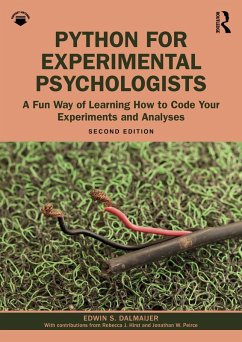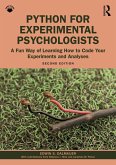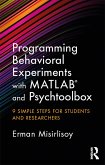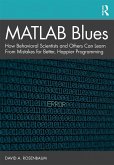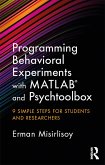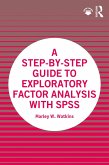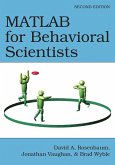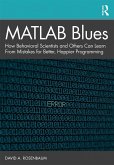This updated edition is on Python 3 (the most current version). It starts by teaching the fundamentals of programming in Python and then offers several chapters on scripting experiments (displaying stimuli, obtaining and logging user input, precision timing, etc.) using the popular PsychoPy package. The remainder of the book is dedicated to data analysis and includes chapters on reading/writing to text files, time series, eye tracking, data visualisation, and statistics.
Access to online support material enriches the learning experience with colour figures, example stimuli, datasets, scripts, and a portable Windows installation of Python. This book assumes no prior knowledge, and its informal and accessible tone helps readers with backgrounds in experimental psychology and cognitive neuroscience to quickly understand Python. It serves as a useful resource not only for researchers in these fields but also for lecturers instructing on methodology and data analysis.
Python for Experimental Psychologists demystifies programming complexities and empowers researchers to proficiently conduct experiments and analyse their results.
Dieser Download kann aus rechtlichen Gründen nur mit Rechnungsadresse in A, B, BG, CY, CZ, D, DK, EW, E, FIN, F, GR, HR, H, IRL, I, LT, L, LR, M, NL, PL, P, R, S, SLO, SK ausgeliefert werden.
Christopher R Madan, author of Memories That Matter: How We Remember Important Things, Academia and the World Beyond book series on post-PhD careers, and An Introduction to MATLAB for Behavioral Researchers
Praise for previous edition
'An easy-to-read introduction. In a humorous style it introduces the reader to programming in Python, picking them up where they are as experimental psychologists. Very useful indeed!'
Ulrich von Hecker, Senior Lecturer, Cardiff University, UK
'Edwin Dalmaijer provides an intuitive introduction into psychological experimentation using Python libraries co-developed by the author himself. Well-structured and easy to read, this book will quickly have you programming, running and analysing your own experiments using open, modern tools.'
Tomas Knapen, Assistant Professor Cognitive Neuroscience, Vrije Universiteit Amsterdam, The Netherlands
'Python is fast becoming the lingua franca of scientific research, and this excellent and highly accessible book fills a much-needed gap for experimental psychologists. The strong focus on developing genuinely useful experimental code, and the comprehensive examples included, make it an outstandingly useful resource not just for students, but for seasoned researchers as well. Certainly the best (and funniest!) introduction to Python I've come across.'
Matt Wall, Imaging Scientist, Imperial College London, UK

